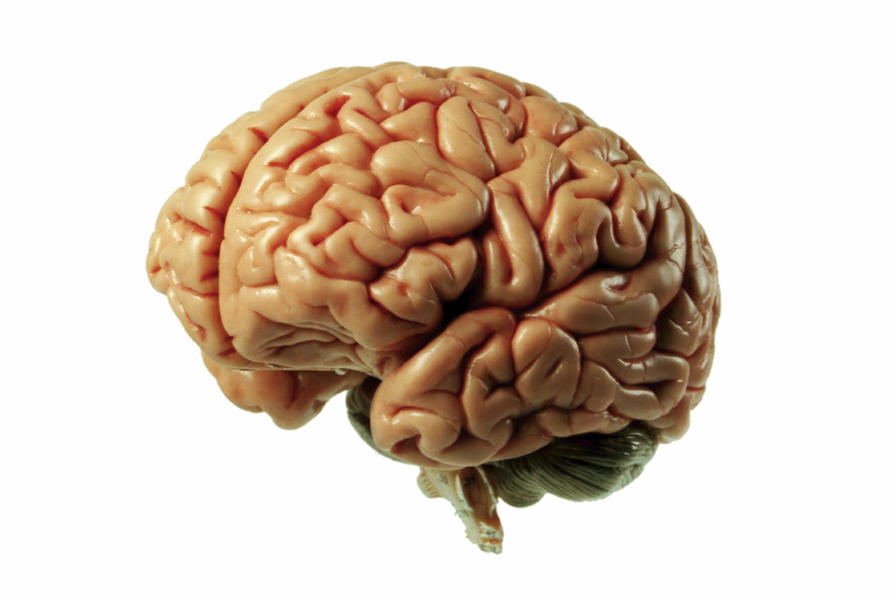More than 100 jars of human brains are missing from the University of Texas


A free daily email with the biggest news stories of the day – and the best features from TheWeek.com
You are now subscribed
Your newsletter sign-up was successful
One hundred jars of human brains taken from the late patients of a mental hospital in Austin, have disappeared from the University of Texas at Austin.
The Atlantic reports that the brains, submerged in formalin, were kept in the campus' Animal Resources Center. The specimens date to the 1950s, when the Austin State Hospital (AHS) was known as the Texas State Lunatic Asylum. The brains revealed various medical conditions in the hospital's patients, including burst blood vessels and brain malformations.
Dr. Coleman de Chenar, the hospital's resident pathologist from the 1950s until 1985, collected roughly 200 brain specimens from his patients. A 1986 Houston Chronicle story reports that six institutions, including Harvard, were interested in acquiring the brains, and the University of Texas eventually won the battle.
The Week
Escape your echo chamber. Get the facts behind the news, plus analysis from multiple perspectives.

Sign up for The Week's Free Newsletters
From our morning news briefing to a weekly Good News Newsletter, get the best of The Week delivered directly to your inbox.
From our morning news briefing to a weekly Good News Newsletter, get the best of The Week delivered directly to your inbox.
One of the missing brains is that of Charles Whitman, the 1960s "Texas Sniper," whose brain had a five-centimeter-long tumor. Tim Schallert, curator of the brain bank, realized that Whitman's wasn't the only missing specimen — when Schallert was asked to move the brains in the mid-1990s, he discovered the brains "had vanished."
Schallert told The Atlantic that the university "never found out" what happened to the missing brains. "They just disappeared," Schallert said. Dr. Jerry Fineg, former director of the Animal Resources Center, told The Atlantic that Schallert sent the brains back to the Austin State Hospital, but both Schallert and the hospital confirmed that AHS never received the specimens. The brains' whereabouts continues to be a mystery.
Update, Dec. 3: The University of Texas at San Antonio has stated that it possesses the missing brains, and they are safe and sound.
A free daily email with the biggest news stories of the day – and the best features from TheWeek.com
Meghan DeMaria is a staff writer at TheWeek.com. She has previously worked for USA Today and Marie Claire.
-
 Political cartoons for February 16
Political cartoons for February 16Cartoons Monday’s political cartoons include President's Day, a valentine from the Epstein files, and more
-
 Regent Hong Kong: a tranquil haven with a prime waterfront spot
Regent Hong Kong: a tranquil haven with a prime waterfront spotThe Week Recommends The trendy hotel recently underwent an extensive two-year revamp
-
 The problem with diagnosing profound autism
The problem with diagnosing profound autismThe Explainer Experts are reconsidering the idea of autism as a spectrum, which could impact diagnoses and policy making for the condition
-
 Nobody seems surprised Wagner's Prigozhin died under suspicious circumstances
Nobody seems surprised Wagner's Prigozhin died under suspicious circumstancesSpeed Read
-
 Western mountain climbers allegedly left Pakistani porter to die on K2
Western mountain climbers allegedly left Pakistani porter to die on K2Speed Read
-
 'Circular saw blades' divide controversial Rio Grande buoys installed by Texas governor
'Circular saw blades' divide controversial Rio Grande buoys installed by Texas governorSpeed Read
-
 Los Angeles city workers stage 1-day walkout over labor conditions
Los Angeles city workers stage 1-day walkout over labor conditionsSpeed Read
-
 Mega Millions jackpot climbs to an estimated $1.55 billion
Mega Millions jackpot climbs to an estimated $1.55 billionSpeed Read
-
 Bangladesh dealing with worst dengue fever outbreak on record
Bangladesh dealing with worst dengue fever outbreak on recordSpeed Read
-
 Glacial outburst flooding in Juneau destroys homes
Glacial outburst flooding in Juneau destroys homesSpeed Read
-
 Scotland seeking 'monster hunters' to search for fabled Loch Ness creature
Scotland seeking 'monster hunters' to search for fabled Loch Ness creatureSpeed Read
